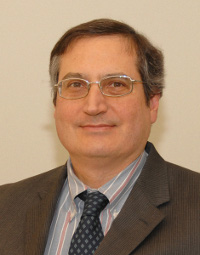Economic Education, Adverse Incentives and Pluralism
Tuesday 27th March, Soas, Senate House room S 211, 4-6 pm
A talk by Dr. Steven Payson, Author of How Economics Professors Can Stop Failing Us: The Discipline at a Crossroads (Rowman and Littlefield, 2017),
In this talk, Dr. Payson examines the incentive system that economics professors face in their work, and how that incentive system needs to improve in order to ensure the profession’s success overall, including its consideration and adoption of pluralism. Success in this regard refers to the contribution of discourse that is valuable to society, by advancing useful knowledge and providing the background for effective policies. His talk focuses on the differences between the scientific pursuit of knowledge and the competitive “publication game” that academic economists are compelled to play in order to advance their careers. The talk is based on Payson’s new book: How Economics Professors Can Stop Failing Us.
In discussing the “publication game” played by economics professors, Payson criticizes the “mathematical weightlifting” of advanced economic theory, while at the same time emphasizing that he is not criticizing economic theory itself. For example, in support of economic theory, his book argues, “Economic theory, like the Slutzky Equation, the Hechscher-Ohlin Model, or the Lancaster-Lipsey Theory of the Second Best, etc., are exactly what makes economics, economics.” He also reviews how some of the most prominent economics professors have already expressed similar criticisms of mathematical weightlifting (e.g., Stiglitz, Krugman, Solow, and Leontief). In the aftermath of the great recession, for example, Krugman noted, “the central cause of the profession’s failure was the desire for an ... intellectually elegant approach ... to show off ... mathematical prowess ... [T]his romanticized ... vision ... led most ... to ignore all the things that could go wrong.”
The talk concludes with a series of recommendations for stronger leadership within the academic economics profession—leadership that needs to address the profession’s incentive system itself, instead of taking it as given. Among these recommendations is a call for the profession’s leadership to redefine loyalty to profession as loyalty to society and to the honest pursuit of knowledge, even if this would temporarily compromise the profession’s current public image. These changes will, in turn, open the entire profession to broader ideas and more useful research, and thereby bolster the profession’s willingness to consider, and to adopt, pluralist approaches.
About the Author
Steven Payson has 34 years of professional experience in economics, having worked as an economic consultant for over three years, as an associate at the Inter-American Development Bank, and, for the past 26 years, as a United States government economist. In the United States government Dr. Payson has worked at the National Science Foundation and the Departments of Agriculture, Commerce, and Interior. In the U.S. Commerce Department, Dr. Payson served as Chief of the Special Studies Branch, and then Chief of Research, in the Government Division of the Bureau of Economic Analysis. In the past seven years he has been a senior economic advisor in the Department of the Interior. For work he has performed in the U.S. government, Dr. Payson received a Bronze Award from the Bureau of Economic Analysis, and a Gold Award from the Department of the Interior.
Dr. Payson has also taught economics as an adjunct faculty member in the United States, at Columbia University, Trinity College (in Washington, DC), American University, Marymount University (in Virginia), Virginia Tech, and Georgetown University. His specialty in teaching has been the “Economics of Technology, Innovation, and Growth.”
In 2006, Dr. Payson founded the Association for Integrity and Responsible Leadership in Economics and Associated Professions (AIRLEAP®), a 501(c)3 nonprofit organization whose Board of Directors is chaired by Distinguished Professor Deirdre McCloskey. For the next 11 years (until the end of December 2017) he had been the Executive Director of AIRLEAP, where he had organized many conference sessions and training seminars for economists on professional ethics, scientific integrity, and leadership responsibility, featuring many of the world’s most leading experts on these topics. In 2009-10 he also served as the President of the U.S. Society of Government Economists.
Dr. Payson wrote his first book in 1994, which was based on his dissertation three years earlier: Quality Measurement in Economics: New Perspectives on the Evolution of Goods and Services (Edward Elgar). He then wrote, in 2000, Economics, Science and Technology (Edward Elgar), and in 2014 he edited a three-volume set, containing 44 chapters written by 60 authors, entitled Public Economics in the United States: How the Government Analyzes and Influences the Economy (ABC-Clio). His most-recent works are How Economics Professors Can Stop Failing Us: The Discipline at a Crossroads (Rowman and Littlefield, August 2017) and The Downsizing of Economics Professors: How It Will Happen, and Why It Will Succeed (Rowman and Littlefield, 2017)
Dr. Payson received a Bachelor of Arts Degree in 1979 from Wesleyan University in Connecticut with a double-major in Mathematics and Bio-psychology, a Master of Science Degree in Economics from the London School of Economics and Political Science in 1982, and a Ph.D. in Economics from Columbia University in 1991.

 Reteaching Economics
Reteaching Economics